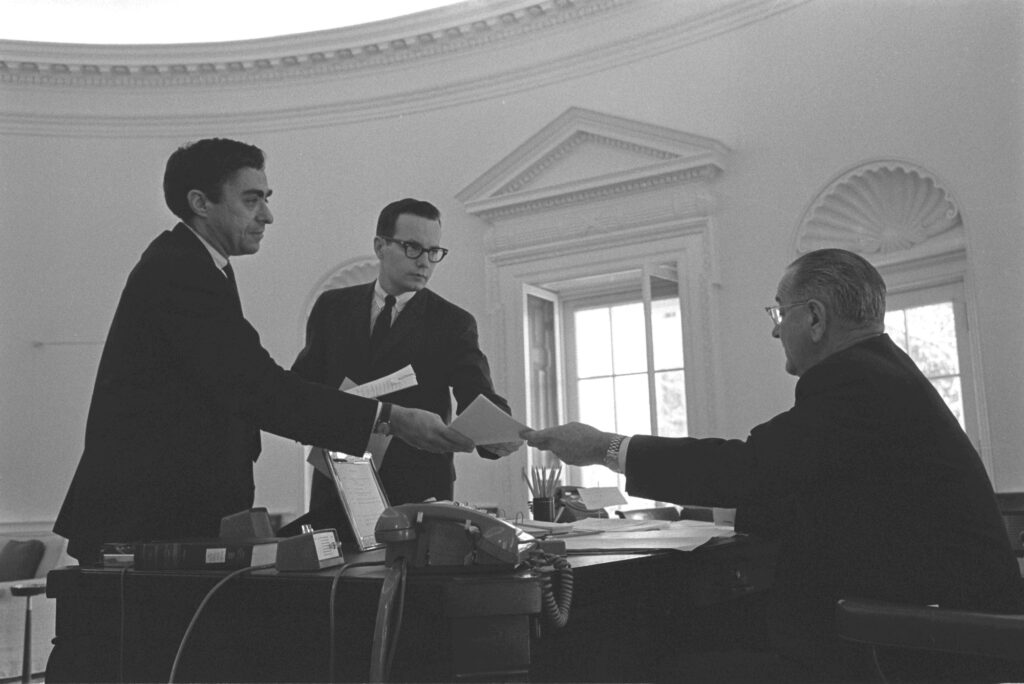GREAT SOCIETY
post.8GREAT GREAT SOCI
The Isolation Blues;
reflections during covid-19

*
The Great Society demands an end to poverty and racial injustice…But that is just the beginning. The Great Society is a place where every child can find knowledge to enrich their mind and enlarge their talent…where leisure is a welcome chance to build and reflect, not a feared cause of boredom and restlessness…where the city of man serves not only the needs of the body and the demands of commerce but the desire for beauty and the hunger for community. It is a place where we can renew contact with nature…which honors creation for its own sake and for what it adds to the understanding of the race…where we are more concerned with the quality of our goals than the quantity of our goods.
I do not pretend that we have the answer to the difficulties of moving our country toward a Great Society, but I do promise to assemble the best thought for a series of White House conferences and meetings on the cities, natural beauty, the quality of education, and on other emerging challenges, and from these begin to set our course toward the Great Society. Your generation has the chance to help build a better society where the demands of morality, and the needs of the spirit can be realized in the life of the nation. There are those timid souls who say we are condemned to a soulless wealth. I do not agree. We have the power to shape civilization…but we need your will, your labor, your hearts…So let us from this moment begin our work, so that in the future people will look back and say: It was then, after a long and weary way, that we turned the exploits of our genius to the full enrichment of our life.
Excerpt from “The Great Society” speech delivered by Lyndon B. Johnsion at the University of Michigan on May 22, 1964
*
When I reflected, I thought that in time others would come to pick up the fallen standards and resume the American journey. They always had, I knew, for two centuries. I am no longer quite so confident. It reflects a clearly observed, widely noted, two decade departure from pursuit of the American dream. That dream a simple one, at least it can be simply stated: a society in which all would have a chance to share in growing abundance; a land without huge inequalities of wealth or fixed class divisions, a nation that promised each individual not a certain income, but opportunity to achieve to the limits of their capacities. Today the clamor from the streets and public platforms, which marked the sixties, is gone, replaced by a strangely muted discourse. It is not an improvement. For the silence only masks the widening ruptures within the nation, hides the swelling ranks of distress, conceals the decline of American strength and purpose.
We cannot, of course, go back to the sixties. Nor should we try. The world is different now. Yet, two decades have passed and a new generation is emerging. They can pick up the discarded instruments and resume the great experiment which is America. There is no question of capacity, only of will. And I see – compel myself to see – a country that, like the waning March days in frozen Concord (MA) where I write, is teeming with the still-ambiguous signs of renewal. If this book has any purpose at all, it is not to impose a guide on that future, but to remind that men and women can live as if their world was malleable to their grasp; and that, true or false, to live in this belief is to be most authentically alive.
From the postscript of Richard Goodwin’s book “Remembering America” (1988)
*
Some of the best books I’ve read I found in the discount book-bin for one dollar ($1). This is true for the hardcover edition of Richard N. Goodwin’s book “Remembering America” that I picked up for one buck sometime in the early nineties. Richard Goodwin gained national recognition in 1959 as the young congressional investigator involved in what was known as the “Quiz-Show Scandal.” Perhaps you remember the Robert Redford movie “Quiz Show” nominated for best picture in 1994. The film was based on Richard Goodwin’s memoir, “Remembering America: A Voice from the Sixties” and Rob Morrow played the role of Goodwin. In 1960 he joined the Kennedy election campaign as a staff speech writer with Ted Sorensen. After the assassination of JFK he continued as a speech writer with the Johnson administration and in 1964 penned the famous “Great Society” speech. Disillusioned with the Vietnam War he resigned from his White House position and worked on the Eugene McCarthy campaign and later with Robert Kennedy when he entered the race in 1968. After RFK’s assassination he withdrew from politics and moved to Freeman, Maine to write and reflect in the solitude of rural New England. He later moved to Concord, Massachusetts to pursue a teaching career and where he married Doris Kearns Goodwin, a historian and sportswriter.
Goodwin lamented the slow momentum of societal change twenty years after the tumult of the sixties. He remained optimistic that it was simply a lull in the great ongoing work of the American experiment, but now it is thirty years later from Goodwin and the lull has stretched into fifty. The challenges to establishing an equitable American society were identified fifty years ago by leading American figures, but the lack of willingness (and creativity) to implement change has left us in chronically worsening conditions. Martin Luther King, Jr. framed this political/societal process as a moral obligation and existential means to retain the soul of America. In a nation with resources such as ours even the least should have adequate access to life’s basics. Herein lies our current challenge.
I consider myself an optimistic pragmatist when it comes to cultural change and political process. (Huh?!) What that means is systemic change is damn hard work and sometimes you don’t see much progress, but if a crisis is large enough, things can happen fast. I call this “crisis-induced-change.” It’s not the most efficient means because it’s messy, chaotic and involves more human suffering than would have been necessary if a controlled approach had been used, but with crisis, a mass-recognition of the problem and along with it possible solutions are accelerated. The coronavirus pandemic has exposed flaws in our current system which need to be addressed now. Will we rise to the challenge? I like to think so. (After all, I am an optimistic pragmatist!)
Imagine what is possible. Then, do the work.
In the woods,
Dave
May 7, 2020
